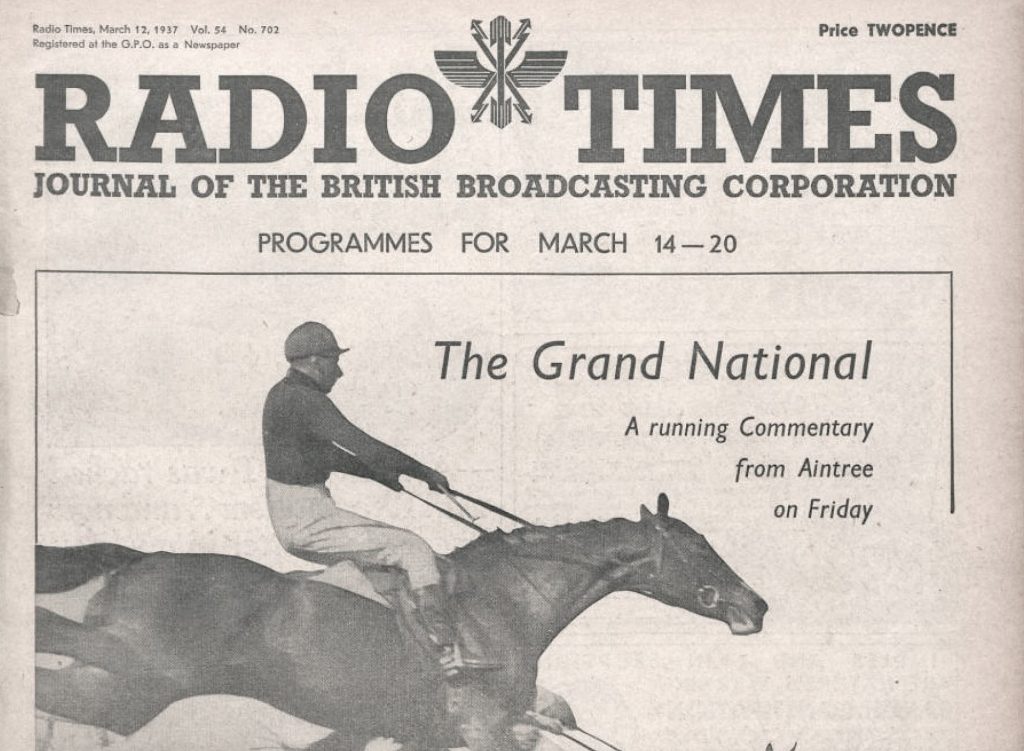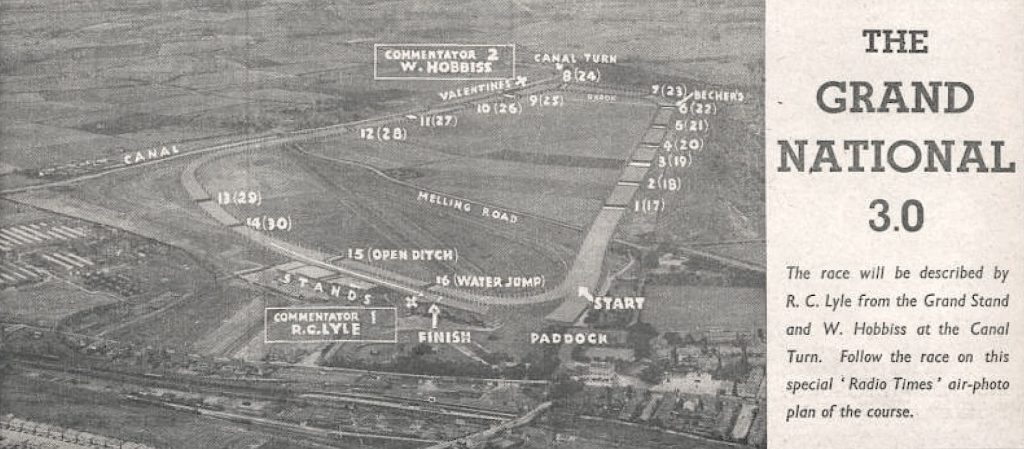OTD in early British television: 19 March 1937

John Wyver writes: The afternoon of Friday 19 March 1937 saw the Television’s first Grand National, although not with live pictures from Aintree. Instead, as was the case with other sports events during the pre-war years, and especially before the mobile control room entered use in May 1937, ‘viewers’ had to make do with radio commentary, which was carried on the television channel, accompanied by generic photographs of the course.
Radio Times provided the ‘air-photo’ below to help listeners follow the commentary, and this is the kind of thing that AP would have put in screen during the race (although we don’t know if this one was used). Comparable ‘coverage’, and still no live pictures, was provided by AP in 1938 and 1939.

The occasion is also one example, of which there are many, where the listings in Radio Times, compiled more than a week before the day itself, is a misleading guide to what was actually transmitted. The 19 March afternoon line-up in the Radio Times Television Supplement runs:
- 3pm-Heraldry of Yesterday and Today, a talk by Archibald G.B. Russell, M.V.O., Lancaster Herald
- 3.15pm-Interval
- 3.25pm-Variety, with The Griffith Brothers and Miss Lutie, with their wonder horse ‘Pogo’
- 4pm-Close
No mention, you’ll notice, of the Grand National.
Thanks to the labours of Andrew S. Martin, and Volume 2 of his invaluable Sound & Vision compilations of the Programme-as-Broadcast documentation, we know that the transmission running-order was as follows:
- 3pm-Programme summary
- 3.01pm-Variety
- 3.12pm-Relay of Grand National sound broadcast
- 3.29pm-Variety, continued
- 3.42-Grand National result
- 3.52-Heraldry of Yesterday and Today
- 4.16pm-Close
Presumably when Radio Times went to press, producers at AP were not confident about being able to broadcast the Grand National in whatever form, which is why there is the listing of the 10-minute ‘Interval’. But the changes also indicate how fluid the schedule was in the early months. In many respects, with little respect for advertised start times and with frequent overruns, it stayed this way until the war.
Leave a Reply